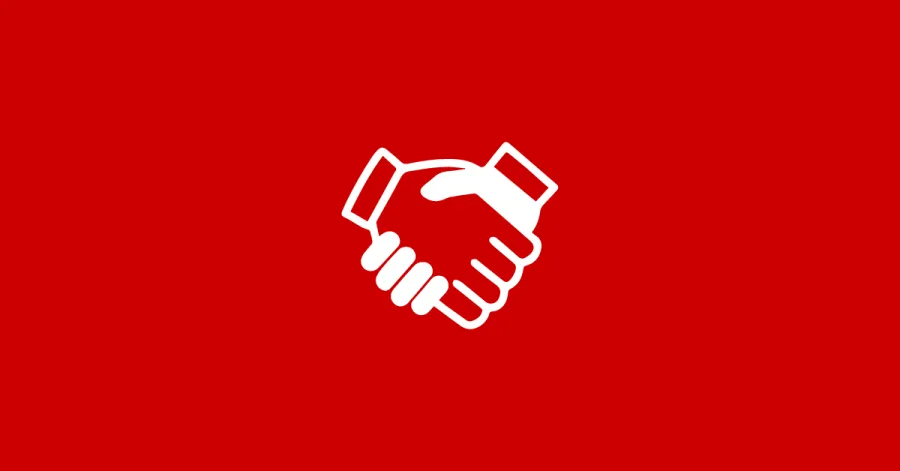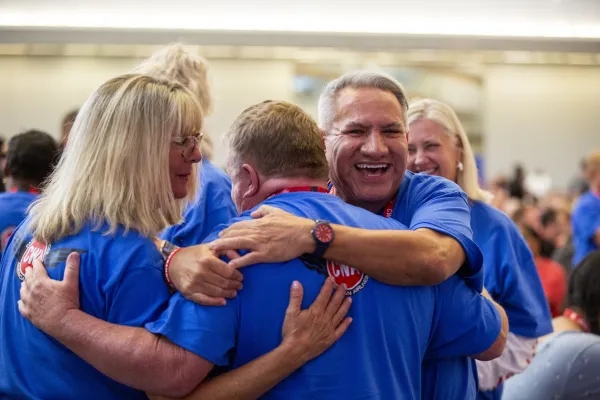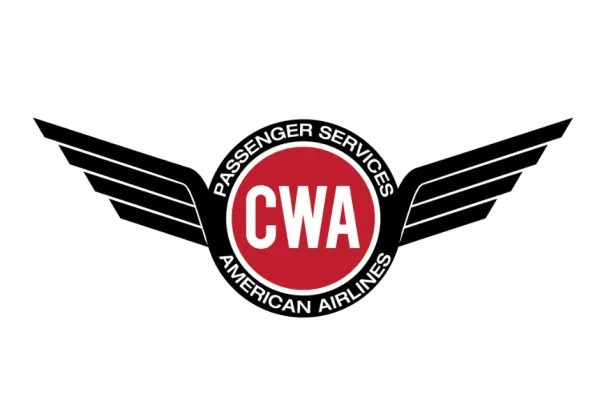"We Wear the Same Uniform. Let's Stand Up for Each Other."

In our day-to-day work lives sometimes we forget that whether we’re mainline agents or regional agents, we’re really all on the same side as workers. American agents, Envoy agents, and Piedmont agents ride the same employee buses to work, wear the same blue shirts and trousers, laugh at the same inside jokes, and talk in the same shorthand airport lingo. But often we don’t talk to each other and don’t understand all the challenges we have in common.
“We work for the same corporation, and we wear the same uniform, so let's stand up for each other,” says Carolyn Marsalek, a thirty-year veteran of the busy American Airlines ORD station and vice president of CWA Local 4201.
It’s in our own best interest as mainline workers to support regional agents as they bargain for better pay and benefits, Carolyn explains. “In Chicago, for example, half our flights are feeding in from Envoy and we need those agents to be the best they can be. When they feel valued and do a good job, our job is easier.”
“But it’s also about our job security. We want regional agents to have strong contracts that provide incentives for the company to keep stations up and running as professionally as possible, and not try to offload them to lower quality, third-party vendors. If that happens, we all lose.”
The bottom line is that as passenger service employees—whether we’re mainline or regional—we all know the day-to-day struggles of getting the job done, meeting all the expectations of management and customers, and then going home and trying to keep our families and homes running smoothly. We're in this together, and we need to remember that.
Debora Sutor, International Vice President for the Association of Flight Attendants-CWA, couldn't agree more. "Management wants workers to be divided, and to fight among ourselves because that's how they gain leverage. But if we link arms and say that we will fight these big pay and benefits discrepancies, we can protect both mainline and regional employees," says Debora. "We call our program at AFA "Bridge the Gap," which means we want to address the big gaps in wages, work rules, and benefits, because doing so will help everyone and stop the race to the bottom we see in so many airlines."
Kevin Creighan, AFA-CWA International Secretary-Treasurer, notes that, "In terms of mainline and regional carriers, management wants us to see ourselves in competition, but we aren't. We do the same job. We're in the same family. It's still a work in progress, but we're making a lot of positive gains in coming together."
Carolyn adds, “When it suits the company, they treat us all the same, but when it’s to their advantage to separate us in order to weaken our bargaining position, the company puts up walls between us and treats regional agents like second-class citizens. It’s a slippery slope, isn’t it? If we let one group of agents be treated as less than—isn’t it just a matter of time before that happens to us too?”
“We don’t need any more walls between us,” says Carolyn. “We need bridges connecting all American employees—and even connecting management and workers. I have some hope that that’s where we’re going. I hope mainline agents will reach out to regional agents at trainings, on the bus or subway, and even in line at the coffee kiosk, and share some words of support. It may be a cliché, but it’s true: We are all stronger together.”


